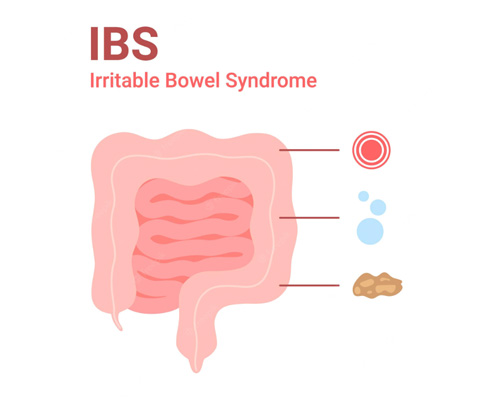-
-
Phone 289-748-2450
What are the main causes of irritable bowel?

As has been stated in recent years, there are 2 key factors that are related to the onset of irritable bowel syndrome. We are talking about food intolerances and the health of people's intestinal flora
Intolerances or foods that cause hypersensitivity: some foods can irritate or alter the intestine. Although they show milder symptoms than those of an allergy, which requires medical intervention or a drug to stop its effects, they can cause a lot of discomfort for the person. Undoubtedly, when we think of foods that can cause this hypersensitivity, dairy and gluten immediately come to mind, since they are the best-known intolerances at a general level. In fact, in the case of lactose, it is estimated that 75% of adults do not properly digest lactose.
The health of each person's intestinal flora is another factor that is related to different intestinal disorders. Our intestinal flora is made up of about 500 different species of bacteria. If an imbalance occurs between beneficial bacteria and unwanted bacteria, our intestinal flora will be altered and symptoms may begin to appear. In addition, the consumption of drugs such as antibiotics is also directly related to the alteration of the intestinal flora and the appearance of symptoms such as diarrhea or abdominal pain.
How do I know if I have irritable colon?
The easiest way to know if we suffer from irritable bowel syndrome is to pay attention to the irregularities and stomach disorders we suffer from. If we have abdominal pain, our stools have changed and we are frequently swollen, we may be suffering from this syndrome.
However, it is best to go to a doctor who specializes in the digestive system so that he can carry out a clinical analysis that determines whether, in fact, we suffer from this syndrome or, on the other hand, some other stomach disorder.
What is good for irritable bowel with diarrhea?
If you have started to suffer from diarrhea due to having an irritable bowel, you should start applying some measures that will help you reduce the frequency and liquidity of your bowel movements and, little by little, recover the normal state of your stomach.
When we start to have diarrhea, our main concern is to suffer from dehydration. Therefore, it is advisable to increase our consumption of liquids such as water, as soon as we start to suffer from diarrhea.
In addition, since there is no vaccine for diarrhea, the best thing we can do is follow a low-fat dietary treatment, which does not alter our stomach so that it gradually recovers.
To do this, we must eliminate all high-fat products such as fast foods, pastries, fried foods, sauces, sweets, etc., and opt for a diet of mainly cooked foods such as pasta and rice, and vegetable or chicken soups.
All this, combined with a high fluid intake will help you fight the diarrhea that your irritable bowel has caused.
What symptoms does the colon give when it is inflamed?
When our colon is inflamed, it means that something is not right and that we are suffering from certain irregularities or stomach disorders that can cause discomfort.
Normally, when the colon is inflamed, symptoms such as abdominal pain, colic, the appearance of gas and also changes in the person's bowel movements, such as diarrhea or constipation, appear.
If our colon is inflamed, we can feel pain in the abdomen, which will only be relieved by the deposition or expulsion of accumulated gases that cause inflammation. Likewise, heartburn may also appear.
Looking for best walk in clinic or family doctor in Brampton, Mississauga and Vaughan? Vanrose Pharmacy & Medical Center is the best option for you.




